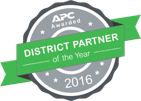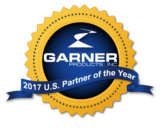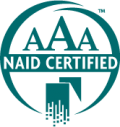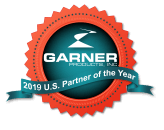Data Center Temperature Standards
Data center temperature is one of the most important environmental factors when it comes to the proper functioning of servers and other IT equipment. After all, the performance of sensitive electronic equipment can be significantly affected by excessive heat or cold. It’s essential for companies to maintain the right server room temperature range that will allow their equipment to function at its best.
As guidance for data center designers and operators on important topics such as optimal data center temperature ranges and server room humidity standards, the American Society of Heating, Refrigerating and Air-Conditioning Engineers — or ASHRAE — publishes standards such as its ANSI/ASHRAE/IES Standard 90.1-2016 Energy Standard for Buildings Except Low-Rise Residential Buildings.
What Are the Temperature Standards for Data Centers?
While Standard 90.1 offers useful recommendations for data centers’ temperature considerations, it’s not in and of itself a legal standard — though many local and state building authorities have adopted its thermal parameters as a reference. Considering the prescriptive weight that Standard 90.1 carries, as well as any potential conflicts it may introduce as facilities adopt more advanced IT equipment, it’s worth looking at the following topics as they relate to data center temperature standards:
- Power usage effectiveness (PUE): The original PUE measurement, which represents a one-time measurement of power in kilowatts, is often misleading. A facility could take this measurement during a cold spell — when little to no cooling energy for the facility is required — and skew any findings based on this type of PUE measurement. Accordingly, PUE categories mandating that the measurement be taken at a time of high power draw — such as on a warm day — are far more representative of a center’s actual power usage effectiveness.
- Temperature references: Since various temperature standards — such as predicting the evaporation rates of cooling systems — call for different readings, it’s useful to understand the inherent differences of dry bulb, wet bulb and dew point temperature references. A dry bulb is unaffected by the air’s humidity, while a wet bulb — surrounded by a moisture-laden material — will give a lower reading in drier air as the moisture around its bulb evaporates. Dew point readings calculate 100 percent relative humidity — a vital consideration when sensitive electronic equipment needs to be kept dry and operational.
- Recommended versus allowable temperatures: While recommended temperature ranges have remained relatively unchanged and help inform data center managers who are looking to optimize their facility’s performance, recently published allowable temperature ranges have surprised many professionals in the IT sector. It should be noted, however, that allowable temperatures are often seen as a way to include the more robust operating ranges of newer, more thermal-resistant equipment. In almost all circumstances, having sufficient thermal sensors per aisle and — if necessary — per cabinet is the recommended method for optimized temperature monitoring.
- Environmental specifications: It’s also helpful to be aware that since its first published thermal guidelines for data centers, ASHRAE has broadened its environmental operating parameters. It did so to become more aligned with NEBS — or Network Equipment-Building System — specifications that were first developed in the 1970s by Bell Labs to help ensure the reliable and standardized operation of telephone systems and telecommunications equipment.
Control Your Data Center’s Environment With DataSpan
With more than half of the Fortune 1000 on its pleased client list, DataSpan has the knowledge, services and products to fully meet your data center’s thermal and environmental needs. Discover what more than four decades of vendor-agnostic expertise can do for your data center — contact us today.







